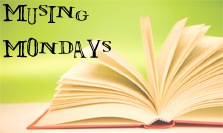Thoughts on a couple of links I have come across:
First, Jeff Sparrow at Overland asks whether the internet has affected one’s ‘ability to enjoy literary fiction — or indeed any long books that require prolonged concentration’. It’s a difficult question for me to answer, because I became a serious reader at about the same time I gained regular access to the internet. To be clear: I have been a reader all my life; but I didn’t have the opportunity or inclination to read as widely as I now do until I started university, which was also when the internet became part of my life. There is no neat ‘before’ and ‘after’ for me to compare.
Still: it is true that the most intense periods of reading in my life (the summer before I started university, and vacation periods before we got an internet connection at home) were times when I didn’t have internet access. It is true that the internet has become part of my daily routine, such that I go online pretty much every day, but I don’t read a book every day. It is true that sometimes I find it difficult to just sit down and read a book, but that’s not because of the internet – I have a lot of hobbies, and not enough time to do them all to the extent I’d like; so there’s often a thought (irrational, I know) in the back of my mind about all the other things I could be doing.
And there have been plus points. I am undoubtedly a better reader because of the internet. Reading other people’s reviews and having the opportunity to write my own both encouraged me to think more deeply about what I read. It’s still happening: this year, for the first time, I’ve written in depth about whatever books I felt like; and this too has made me appreciate them better. Add to this the opportunities the internet brings to share thoughts with other readers – and, yes, to communicate with writers – and I must conclude that the internet has enriched my life as a reader.
The most important thing for me, though, is that, when I do sit down to read, I can still read at the speed and level of concentration that I always could. It’s true that I have less time for reading than I used to – but that because I’m not a student any more, and has nothing to do with the internet.
That article led me to this post by a blogger called ‘Ariel’. Most readers, another blogger told her, won’t read posts of more than a few paragraphs, if that. Ariel’s post is a defence of blogging at length.
Now, there may be some truth in the idea that many online readers prefer short posts. When I look at my blog stats, I am constantly surprised at how often (not always, but often) people arrive here having apparently searched for information on a book or film I reviewed externally, then read my short post linking to the review – but don’t click through to the review itself. I suppose it’s possible that these visitors may have already read the review and then find this blog while continuing their searches; but it’s more likely, I suspect, that they want a quick thumbs-up or thumbs-down to aid with a buying decision. Which they’re perfectly entitled to want; but, as Ariel suggests, the possibilities of the online medium allow for so much more.
My posts, of course, tend to be quite long (though not nearly as long as some). True, the music posts are usually pretty short; but 800 words is not uncommon for the rest (my last book review was nearly 1,300 words, and the longest of all nearly 2,500 – but these were unusual for me). Furthermore, I don’t make concessions to ‘reading at a glance’: no cuts, no summary sections, no star ratings – you just get the full review.
I do this partly because that’s the way I think reviews should be written and appreciated; but also because I think the medium supports it. In my experience, there’s something about ‘journalism’ as a form of writing (I use the term here as a broad umbrella for non-academic styles of non-fiction writing) that makes it quite easy to read on screen. Unlike fiction or academic writing, this kind of writing is pretty close to someone talking to you in prose form; and I think that makes it easier to digest quite lengthy pieces.
Of course, not everybody wants to read long, discursive articles; but not everybody wants to read about the subjects on which I blog, either – and I have a feeling that the people who do want to read about those subjects will be happy to read posts about them that go into some depth. They might even prefer that to very short posts. So: yes, agreed, many people may not read long blog posts – but some will; and it’s never a waste of time to write at length if the people who read what you’ve written get something out of it.
How about you, reader? Now you’ve read my 850 words on these subjects, what do you think?
Like this:
Like Loading...
 I saw this question, and it got me thinking:
I saw this question, and it got me thinking:
Recent Comments